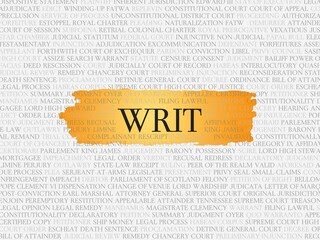Table of Contents
What is a Writ of Possession in Florida
Can A Tenant Stop A Writ Of Possession In Broward County?
 Once the judgment has been passed on the eviction process, the Clerk of Court issues a Writ of Possession which is essentially a court order that directs the sheriff to give possession of the property back to the owner. After the sheriff has served the tenant with the Writ of Possession, they have 24 hours to remove all their belongings from the property after which the sheriff will come back to ensure that that has been executed.
Once the judgment has been passed on the eviction process, the Clerk of Court issues a Writ of Possession which is essentially a court order that directs the sheriff to give possession of the property back to the owner. After the sheriff has served the tenant with the Writ of Possession, they have 24 hours to remove all their belongings from the property after which the sheriff will come back to ensure that that has been executed.
At the time of executing the Writ of Possession, neither the property owner nor the agent dealing with the case is liable for any damage, loss, or destruction of property after the 24-hour window given by the court.
If you believe the landowner has filed the Eviction lawsuit in error or that you are being evicted wrongly, you can file a Motion to Stay the Writ of Possession.
It is highly recommended that if you choose to file a Motion to Stay the Writ of Possession, you seek the services from an experienced eviction lawyer that handles Landlord/Tenant issues. If you are a Tenant and received a Florida Writ of Possession from the Sheriff, contact the experienced Eviction lawyers at Brian Kowal law.
How to Evict a Tenant in Florida
Are you a reliable landlord facing the problem of having a bad tenant? Has the tenant failed to pay rent for ten months? Do your tenants excuse themselves regularly due to late payment of rent? These are some of the common problems faced in Florida. For a self-managed landlord, thinking about eviction may seem like a daunting job. Evicting a tenant in Broward County can be costly and time-consuming if not done correctly.
What Causes an Eviction?
Most of the evictions witnessed in Florida result from rent non-payment and breach of contract by tenants. However, eviction may be due to other reasons.
Eviction Warning Letter
You can severally send your tenant a letter to inform them that they may face evictions if they fail to pay their rent. At the time, it is easier to solve these disputes outside the court.
Eviction warnings have proven to be extremely successful. A three-day notice is served to a tenant who fails to pay rent. The tenant is required to either pay or quit. Once the notice has been served, the tenant makes some deliberate efforts to reach out to the landlord. Sometimes, tenants acknowledging the lease agreement and the repercussions of not abiding by the contract serve the landlord’s best interest.
How to Evict a Tenant in Florida
 Step 1. Deliver/post a written notice based on your situation; either non-payment or Breach of the Lease contract
Step 1. Deliver/post a written notice based on your situation; either non-payment or Breach of the Lease contract
Step 2. File the Eviction. Evictions filing are done at the courts in the county where the rented property is situated.
Step 3. The court presents a summons
Once the presentation of the court summons, the tenant has five days to file a response. If the tenant files a response, the landlord is notified of a pending court date, and he will need to attend a court proceeding. If the tenant fails to file a response, the case gets forwarded to be finalized.
Step 4. Issue of the Final Judgment
Step 5. WRIT of possession
- These are the last documents issued through the court system
- Even if a tenant seems to have vacated, always follow through with the WRIT
Step 6. Sheriff serves WRIT
- The sheriff posts a 24-hour notice.
- After 24 hours, the property is inspected by the sheriff, and it is turned back to the landlord/eviction contact person.
What happens if the tenant does not vacate? The sheriff arrives and asks the tenant to verbally leave the premises; failure to comply with the request, the tenant is physically ejected.
Why A Brian Kowal Eviction Attorney?
Dealing with eviction requires someone that understands the legal process of the eviction to help you navigate the process.
This is why a Brian Kowal Eviction Lawyer will help you through the process and interpret legal terms for you to ensure you get the best deal out of the eviction.
Reach out to us at 954-990-7552 and let us offer you the help that you need.
